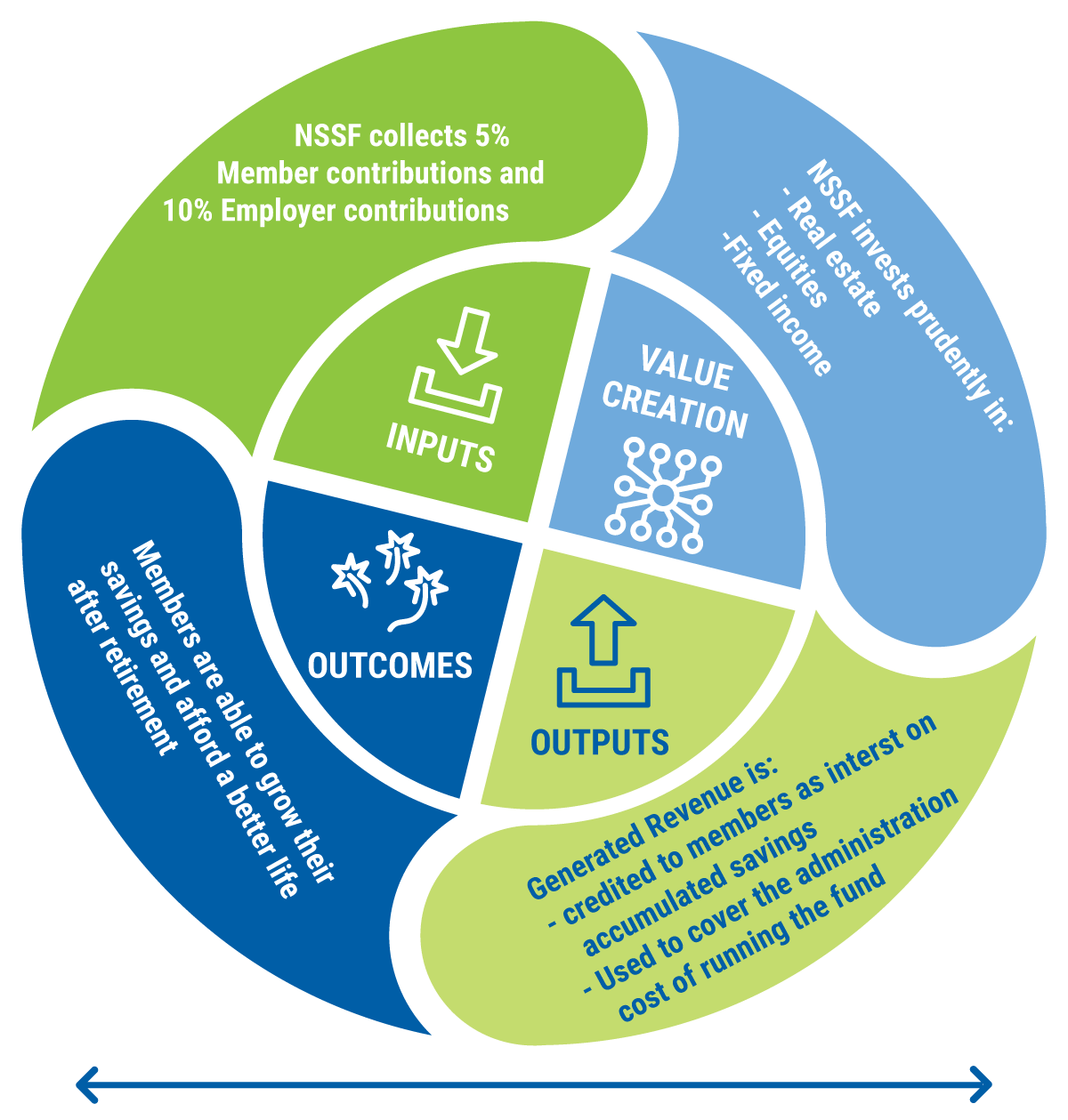INPUTS
What we need to run our business
 Financial Capital
Financial Capital
We manage the Fund responsibly and in a profitable manner by making prudent investment decisions.
 Intellectual Capital
Intellectual Capital
The Fund’s reputation, institutional knowledge and experience are intangible assets that have been built over time instilling confidence in us among our stakeholders and in Uganda at large.
 Human Capital
Human Capital
We attract, develop, enable and retain the best talent. Our people are provided with attractive career paths and training to make them experts in their fields.
 Manufactured Capital
Manufactured Capital
This comprises our governance, business processes, building infrastructure, information technology infrastructure and innovation that enable us to manage the organisation optimally.
 Social and Relationship Capital
Social and Relationship Capital
We build on the good relationships we have with our members, employees, the Board, the Ministry of Finance, the Ministry of Gender and Social Development and our regulator, URBRA.
 Natural Capital
Natural Capital
We use natural resources responsibly and continue to reduce our carbon footprint and water usage, adopting a sustainable approach to waste management.
HOW WE RUN OUR BUSINESS
We create, preserve and defend value by using our resources responsibly to generate value maximising outputs and outcomes for our Members and all stakeholders

Being cognisant of our material matters, while managing key risks and opportunities and our strategic objectives - all underpinned by sound governance.
OUTCOMES - KEY OUTCOMES
What we achieve for our stakeholders
 Interest paid to members
Interest paid to members
12.15%
 Customer satisfaction
Customer satisfaction
86%
 Staff satisfaction
Staff satisfaction
94%
 Customers serviced digitally
Customers serviced digitally
94%
 Logged customer complaints
Logged customer complaints
87.0%(resolved on first attempt)
 Reduction in paper consumption
Reduction in paper consumption
61.5%
... and ensures our ability to create value in the future.
Apart from creating and preserving value, there are instances where value is diminished through our activities. When making decisions on how to manage our business, we consider the trade-offs between capitals: we aim to maximise positive outputs and outcomes and limit negative impacts.

